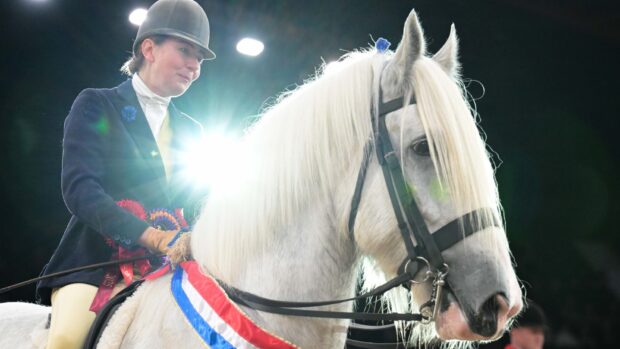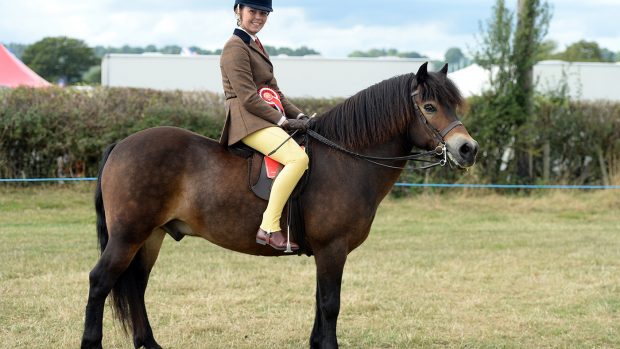The Rare Breeds Survival Trust (RBST) is asking owners of Britain’s rare native pony and horse breeds to help secure their future by putting stallions forward for its semen bank.
There are currently 12 breeds on the RBST’s watchlist of endangered horses and ponies. In the critical category are the Cleveland Bay, Eriskay pony and Suffolk horse — which each has less than 300 registered breeding mares. Breeds at risk include the Shire horse (pictured), Highland pony and Fell pony.
The RBST aims to collect semen from 25 stallions from each of the breeds listed as part of their ReGENEration appeal, to ensure that, should a crisis occur in the populations, there will be adequate semen supplies, to prevent any breeds becoming extinct.
The RBST’s Claire Barber told H&H: “It is like an insurance policy. We don’t want to be too late if a problem does occur so we are acting now.”
Nigel Cowgill from the Cleveland Bay Horse Society said: “We have been able to build up a significant selection of semen from a wide range of horses with the help of the RBST and this will assist us to preserve the breed.”
All stallions must be registered and have an accurate, minimum three-generation pedigree, to ensure the semen bank holds the broadest genetic diversity in the current population.
Of the semen collected 55 per cent will go into a national archive, 30 per cent will be used for conservation breeding programmes and 15 per cent will belong to the stallion’s owner. Collection costs will be covered and the semen will be stored by the RBST.
Mr Cowgill said: “It is essential that schemes such as that provided by the RBST support semen collection by the breeders of rare and endangered breeds as the costs of doing so privately are often prohibitive.”
Ms Barber added: “We’ve had a number of stallions put forward already. But the greater the choice the more accurate the representation of the breed. And the more money the council will budget for the semen bank.”
The ReGENEration appeal was originally set up in 2001 as a direct response to the foot and mouth outbreak as the effects highlighted the need for reserves of genetic material for all species and breeds listed.
But this year the RBST council has prioritised equine conservation in their budget, with the threat of exotic diseases such as African Horse Sickness (news, 17 April) further encouraging them to move ahead promptly.
The semen bank is one project funded by the appeal — the second was the development of the National Rare Breeds Library at Stoneleigh which opened in 2003 and houses studbooks.
Visit: www.rbst.co.uk



